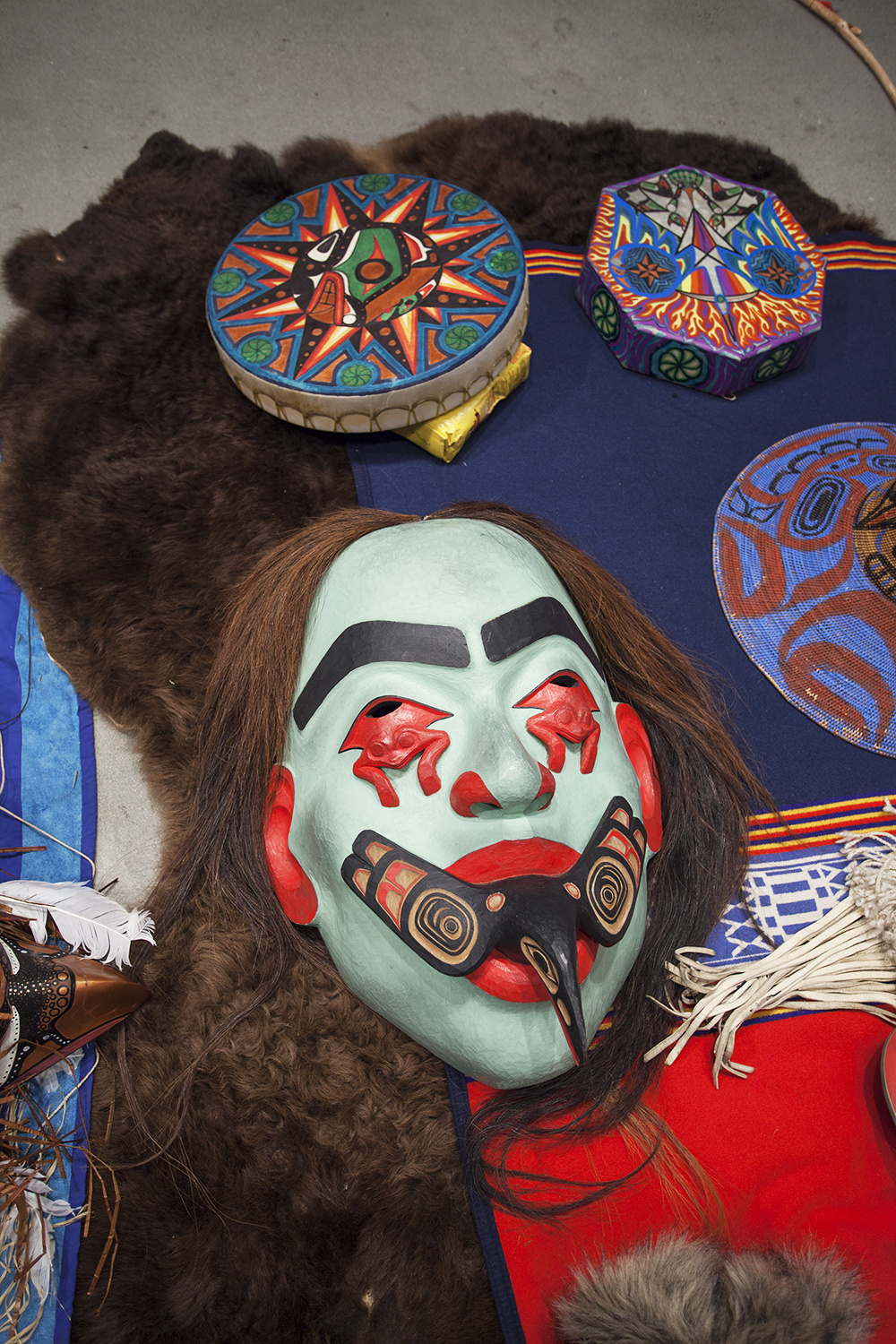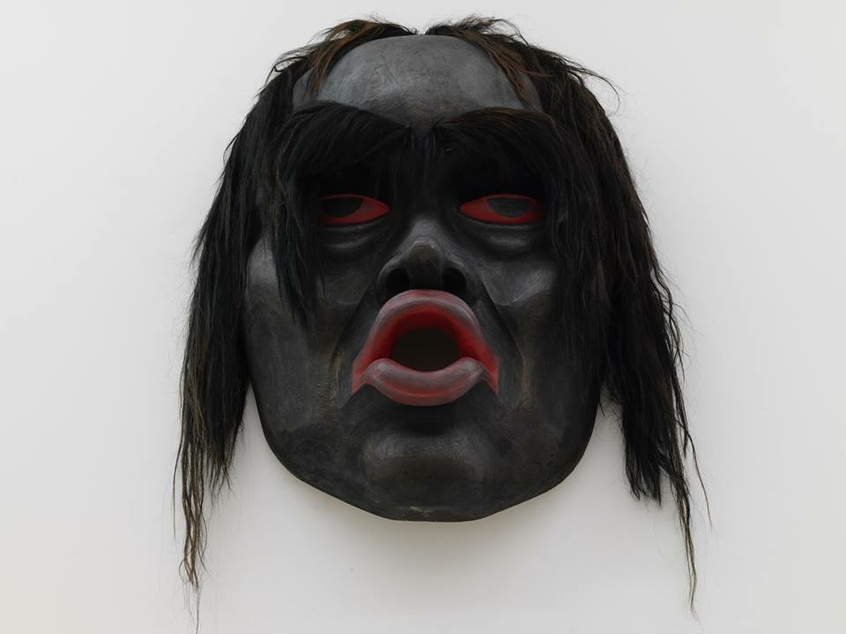Beau Dick’s name in the Kwakw’ala language means “big, great whale.” His carvings often feature Dzunuk’wa, the “wild woman of the woods,” and her counterpart, Bakwas, “wild man of the woods.” These supernatural figures loom large in Kwakwaka’wakw cosmology and also in Dick’s practice. Bakwas is a stealer of souls. He lures his victims with poisonous food—toads, snakes, lizards, and maggots. Those who consume his offerings become Bakwas, forever trapped in the house of spirits. Dzunuk’wa is a cannibal. She lumbers through the woods, plucking out disobedient children and putting them in her cedar basket for later eating. Her giant face is black as though charred from a fire, and her red lips are always pursed as though about to cry out, “HUU! HUU!”
In Dick’s hands, masks are not simply masks, they are animate beings that have important roles outside the confines of contemporary art. He is continually short-circuiting their status as a commodity. In 2012, he removed the forty Atlakim (Forest) masks from the walls of his gallery and brought them back to his community in Alert Bay, where they were danced for a final time and then ceremonially burned. There is rebirth within this destruction, as now there is a responsibility to carve a new set of masks, which in turn keeps them alive.
A hereditary chief, Dick (born in 1955) is highly active in his community. As soon as the ferry docks, his hand is visible, from carved totem poles at the top of the hill to memorial poles near the shore of the bay. Lately, he has also been galvanizing those outside his village. In February 2013, inspired by the activist movement Idle No More and spurred on by his daughters Linnea and Geraldine, they walked south from Quatsino to Victoria, British Columbia, where in the presence of some three thousand people they broke a copper named Nunmgala on the steps of the BC Legislative Assembly. In 2014, he gathered even more supporters and broke copper on the steps of Parliament Hill in Ottawa. Dick, the maker of monsters, is exposing some too. The coppers broken on the steps of two houses of power are a call against colonialism and capitalism: “In breaking this copper we confront the tyranny and oppression of a government who has forsaken human rights and turned its back on nature in the interests of the almighty dollar, and we act in accordance with our laws.”
—Candice Hopkins



